Cannabis and Anxiety: Does Cannabis Help Anxiety or Cause it?
Cannabis, often known as marijuana or weed, is an illegal substance in the UK.
It is classed as a cannabinoid, which are simply the compounds found in the cannabis plant (where the drug comes from).
When we talk about cannabis, it is important to make the distinction between CBD and THC.
Both of these are cannabinoids that we get from the cannabis plant, but THC is psychoactive, so it is this substance that causes users to experience a high when they use cannabis.
On the other hand, CBD is non-psychoactive, and it is frequently used for medicinal purposes due to its anti-inflammatory and anti-psychotic properties.
What Happens When You Use Cannabis?
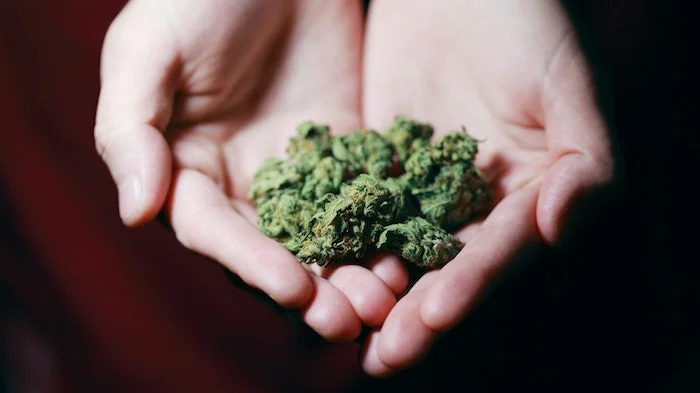
There are some common symptoms that people experience when they use cannabis, such as:
- Happiness
- Confusion
- Paranoia
- Fatigue
- Nausea
- Relaxation
Not everyone will experience all of these symptoms, and some will experience a much wider range.
No one can predict how they will respond to cannabis, as it is dependent on a variety of factors.
One factor that influences your symptoms is your genes; some people are prone to experiencing more intense symptoms when they use cannabis, some people will react stronger to smaller doses, and some may not have a significant reaction at all.
Something else that affects your reaction is the conditions of your cannabis use.
It goes without saying that you are more likely to have a stronger reaction if you take a higher dose (especially for the first time), if you consume a large amount in a short space of time, and if you take edibles rather than smoking cannabis.
It is also important to consider the condition that you are in when you use the substance. If you are already highly anxious, or you are in an unfamiliar environment that you don’t feel safe in, it is more likely that you will have a bad experience with cannabis.
Finally, if you have a history of mental health issues, or you are genetically susceptible to this (which you will not be aware of), it is possible that you will experience psychosis upon using cannabis.
Cannabis use is associated with an almost 3-fold increased odds of psychosis. However, it must be noted that the vast majority of people will not suffer from this based on occasional use.
The bottom line is that you cannot predict how you will react to cannabis, so you are risking severe symptoms when you use the drug. The best solution to this is abstinence, but beyond that, it is important to take low doses, only use it occasionally, and never mix it with another substance.
How Cannabis Can Help Anxiety
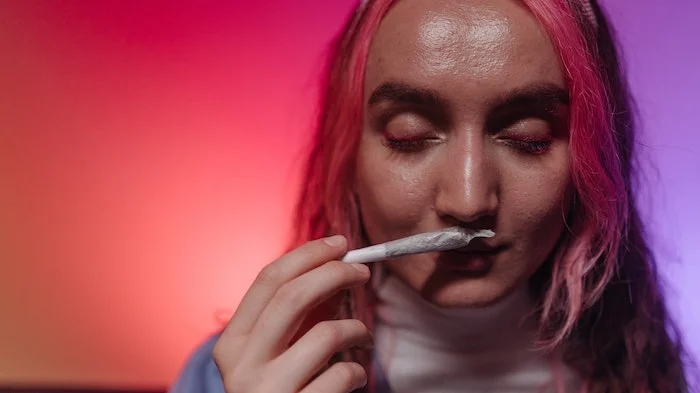
There are many different theories as to whether cannabis helps or harms anxiety. There is not yet a consensus, but some studies show that controlled use of cannabis can have a positive impact on the well-being of people suffering from an anxiety disorder.
A 2017 University of Washington study found that THC decreases anxiety when it is taken in small doses. This may be surprising for many people, as we usually only associate CBD with its healing properties, and THC is often demonised.
That being said, the same study found that high quantities of THC have the opposite effect – they can increase anxiety.
As you might expect, the 2017 study found that CBD decreases anxiety at all doses. As CBD is non-psychoactive, it could be argued that it should be used more frequently as a treatment for anxiety.
The case for THC is harder to make, as it can lead to addiction in some people, which is likely to produce even more anxiety as well as other negative symptoms.
Furthermore, not everyone will respond to THC positively, even in small doses.
This means we should be wary about advocating for THC as a treatment for anxiety.

The reason CBD use, and low THC use, can help anxiety, is that it increases the levels of the neurotransmitter, anandamide. This chemical – often referred to as the ‘bliss molecule’ – brings about feelings of happiness and mental wellness.
CBD has been used in clinical trials of people with social anxiety disorder, with positive results.
One study, conducted in 2010, found that CBD oil alters the blood flow in the areas of the brain that control anxiety, which led to a reduction in anxiety for patients.
Anecdotal evidence shows that many cannabis users rely on the drug to help them reduce their anxiety.
In fact, this applies to 72% of daily cannabis users. However, the positive effects may not last if someone is using cannabis regularly over a long period of time.
How Cannabis Can Create Anxiety
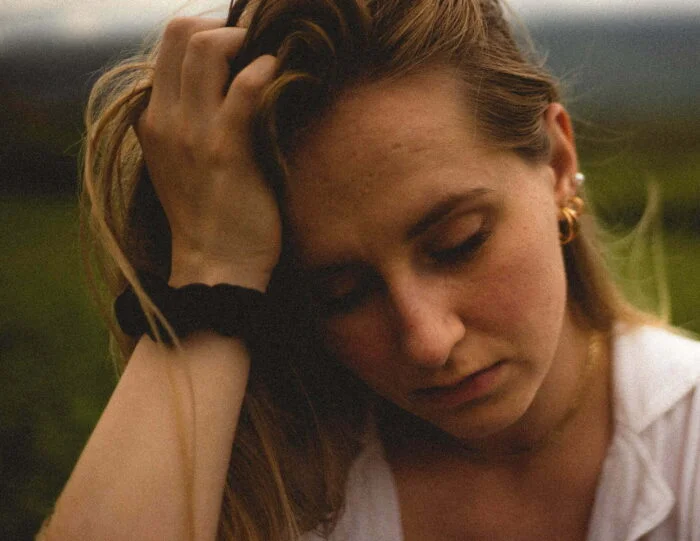
As we have discussed, THC is only potentially helpful for anxiety in low doses. If you consume a large amount of THC, it is much more likely to create anxiety than reduce it.
This is because it floods the brain with cannabinoids, which overstimulates the amygdala.
The amygdala is an area of the brain that controls your emotions, so when it is extra-sensitive, it can cause your emotions to go into overdrive, including making you more anxious.
If you already have anxiety, your amygdala is most likely sensitive on a normal day, so consuming too much THC could lead to high anxiety and even a panic attack.
CBD has also been linked to increased anxiety in some cases. A 2014 study found that some patients treated with medical cannabis had the side effect of high anxiety. This demonstrates that individual reactions to CBD vary drastically.
Cannabis can even sometimes trigger anxiety in people who have no history of mental health issues.
Long-term use of the drug is believed to ‘[alter] multiple stress response symptoms’, which creates anxiety and increases the risk of addiction.
There is even a diagnosis known as ‘cannabis-induced anxiety disorder’, which is associated with long-term use of cannabis or withdrawal from cannabis after using it regularly for a long period of time.
If cannabis is used just once or occasionally, the anxiety symptoms tend to be temporary, so cannabis-induced anxiety disorder is only linked to chronic use of the drug.
What Other Mental Health Issues Can Be Caused By Cannabis?
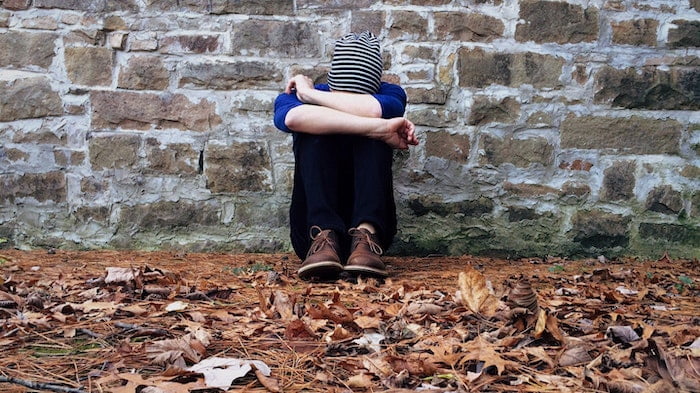
Below, we discuss mental health issues that can be caused by cannabis use:
1. Depression
Just like anxiety, depression can be reduced with low levels of cannabis (usually CBD), but worsened with high levels. In some people, it is worsened even in low doses.
Having said that, it is difficult to establish a direct cause and effect between cannabis use and depression.
One reason for this is that we do not currently have enough research into this topic.
Another reason is that people with depression are much more likely to use cannabis, so it may be that this is the link between cannabis and depression, rather than cannabis users being more likely to develop depression.
2. PTSD
First, let’s make it clear that you cannot develop PTSD from cannabis use.
However, if you already have PTSD, your symptoms could be worsened with chronic marijuana use, especially as it often causes paranoia.
Something else to keep in mind is that if you experience a traumatic event and use cannabis to cope with it, it is more likely that you will develop PTSD than if you relied on a healthy coping mechanism.
3. Schizophrenia
The link between cannabis and schizophrenia is not yet clear, as is the case with depression.
The reason for this is the same – people with schizophrenia are more likely to use cannabis, so we cannot safely say that cannabis use can directly cause schizophrenia.
Yet, we can say that cannabis use can trigger schizophrenia in people who are already genetically predisposed to this mental health condition.
In people who already have a diagnosis of schizophrenia, it can worsen symptoms and trigger psychotic episodes. Some people may experience an earlier onset of schizophrenic symptoms when they use cannabis.
Should I Rely On Cannabis As a Coping Mechanism For Anxiety?
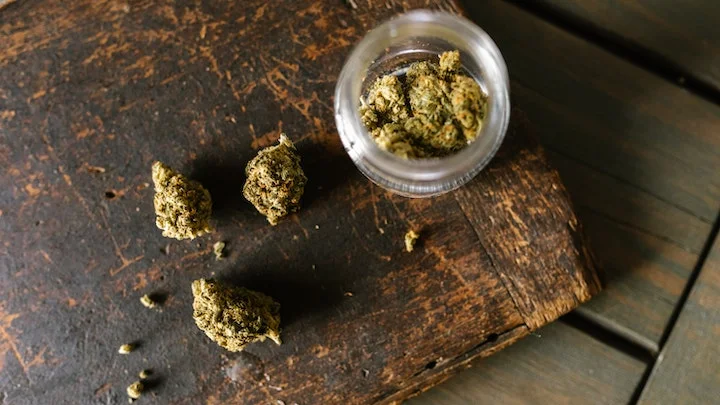
Though we have explained that cannabis can sometimes reduce anxiety in users, we would discourage you from ever depending on it as a way of easing your anxiety.
This is because cannabis dependence comes with a host of negative symptoms, and could be the start of cannabis addiction.
There are healthier methods you can rely on to reduce your anxiety.
One would be therapy. It does not usually reduce anxiety quickly, but over time, you will most likely find it easier to deal with your anxiety as you will understand it better.
Your therapist may also encourage you to put yourself in anxiety-inducing situations so that you gradually become less fearful.
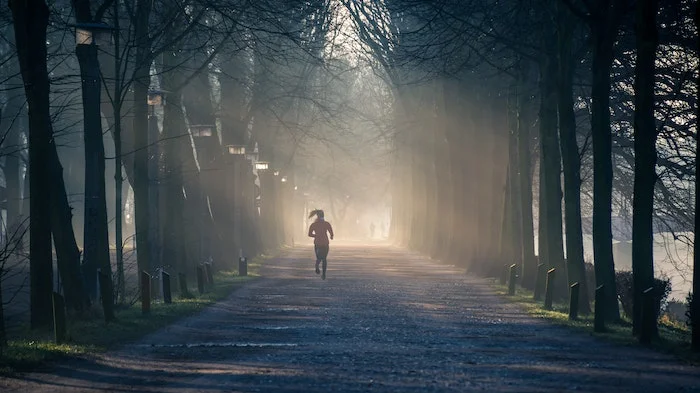
Another coping mechanism we would recommend is exercise. This is a great way to take your focus away from cannabis, to help you relieve stress, and to reduce your anxiety levels.
When you exercise, positive chemicals in the brain are released, which balances out the negative chemicals and makes anxiety less likely.
Getting enough sleep is another way to keep anxiety at bay, as you will be in a much better position to fight your negative thoughts when you are well-rested. You will also be less fragile physically, so you are less likely to experience severe physical symptoms of anxiety e.g., panic attacks.
If you are suffering from severe anxiety, you should consider medication.
One example of this is beta blockers, which target the physical symptoms of anxiety. When you are not in a high state of anxiety, it is much easier to rationalise your thoughts and remain calm.
You could also opt for an anti-depressant that also helps with anxiety. This would take longer to work, but it treats the mental side of anxiety as well as the physical.
It restores the chemicals in your brain to increase serotonin and reduce anxiety.
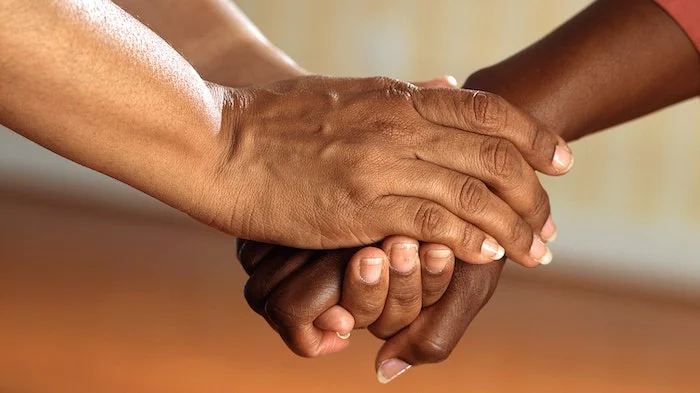
Finally, do not bottle up your emotions, as anxiety thrives off this. It is much better to speak to people you trust about your worries or to write them down.
One exercise we recommend is making a list of your worries and separating them into things you can change and things you can’t change.
For the things you can change, come up with practical solutions. For the others, remind yourself that there is nothing you can do to fix them, and therefore worrying is futile.
This is easier said than done, so do not expect to be anxiety-free just because you have taken these steps.
However, over time if you employ all of these tactics, it is very likely that you will be much less anxious on a day-to-day basis, and you will not have to rely on an illegal drug to do this.
Is it Riskier to Eat Cannabis Or Smoke it?
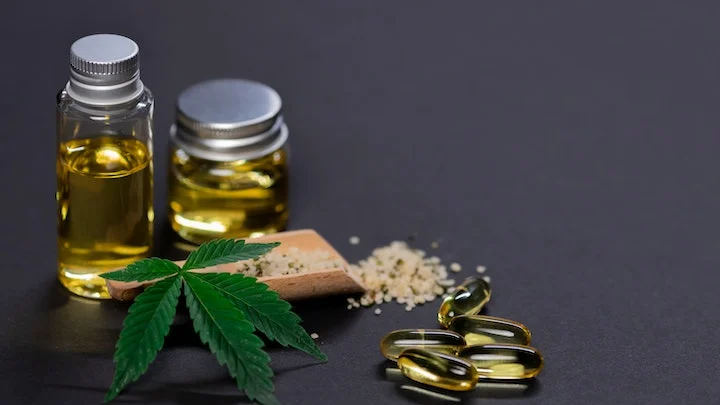
In many ways, it is riskier to take edibles than to smoke marijuana. This is because the effects of edibles tend to be more intense, and they kick in much more slowly than they do when smoking.
This means people may struggle to manage their cannabis use when they take edibles, so they are likely to take higher doses in a shorter period of time.
However, there are risky elements of smoking cannabis, as smoking in general can cause lung damage.
Cannabis inhalation has also been linked to ischemic strokes, which are mini-strokes caused by reduced blood flow to the brain.
Overall, neither smoking cannabis nor eating it are good for your physical health.
Why Rehab Recovery Advocates For Cannabis Abstinence
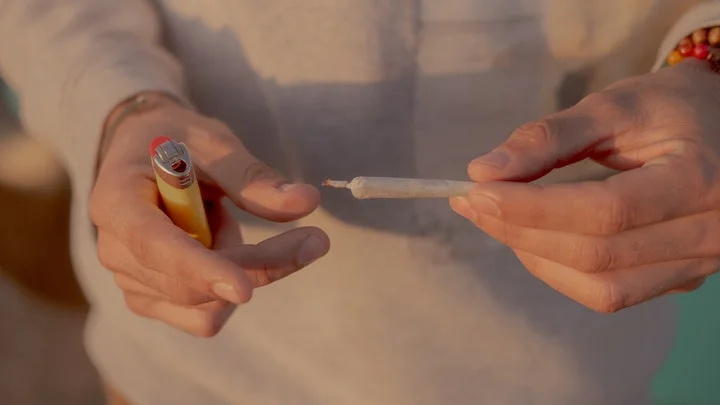
At Rehab Recovery, we refer clients to cannabis rehab facilities that provide medical detoxes and therapy sessions.
None of the drug and alcohol treatment centres we will refer you to approve of the harm reduction theory (using cannabis in moderation).
The reason we support abstinence rather than harm reduction is that there are too many negative side effects of using marijuana, and we do not believe the potential benefits outweigh the drawbacks.
This is especially true given that you do not know how you will react to cannabis, so some people experience extreme symptoms even years into using the substance, making it a risky drug to take.
Moreover, if you show any signs of cannabis dependency or addiction, it is very risky for you to continue to take the substance in moderation.
We have studied the way addiction works, and it is almost impossible for people to stick to the occasional use of cannabis once they have become hooked on it. This means that abstinence is the only reasonable solution.
We know that abstinence has been criticised for being unsuccessful, as many patients relapse after committing to sobriety.
However, statistics show that cannabis users are much less likely to relapse after following abstinence-based treatment for 28 days at rehab. This means the harm reduction method actually causes more damage.
Finally, many people argue that abstinence is completely unreasonable, as addiction is a disease and therefore cannabis users will inevitably keep using.
However, that is exactly why we promote abstinence. If addiction is a disease, we cannot treat it by allowing patients to continue to dabble in it – abstinence is the safest way to prevent the patient from experiencing negative symptoms and even risking death.
Are there Cannabis Rehabs in the UK?
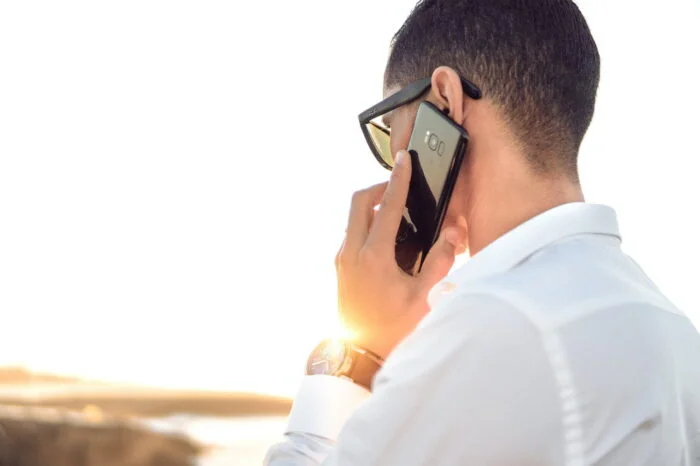
Yes, there are plenty of treatment centres in the UK that deal with cannabis dependency and addiction. Get in touch with us on 0880 088 88 68 to find out more.
In the meantime, why not check if your hometown is on our list of locations? New locations are being added to this list regularly, so keep an eye out.
Even if your town does not appear on our list, we could still offer our services to you.
Our research process is the same no matter which area you live in – we whittle down the rehab facilities based on the answers you provide to our questions.
Some typical questions include:
- Where would you like to attend rehab?
- Would you like a detox, therapy, or both? (Both is recommended for cannabis addiction)
- Are there any specific facilities you would like to have at rehab?
- Do you require a specific type of therapy?
- Would you like to have your family visit you?
- Would you prefer to stay in a private room or to share a room?
If you have anything else you would like to add, you are welcome to voice this when you contact us. We want your experience at cannabis rehab to be as successful as possible, so nothing is too much to ask.




